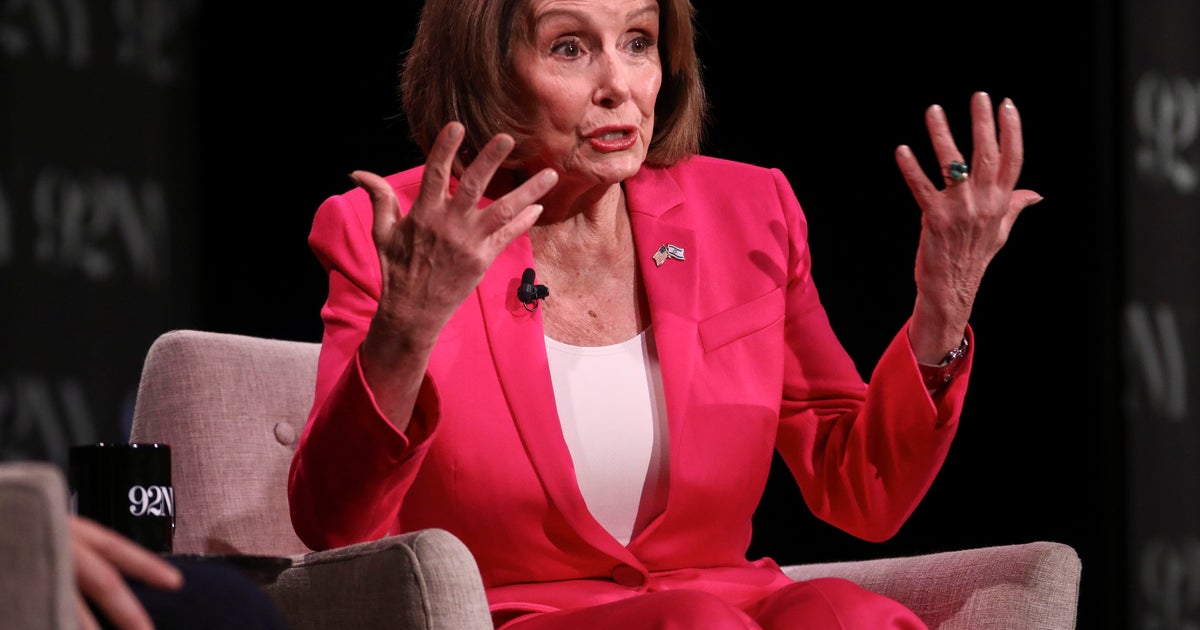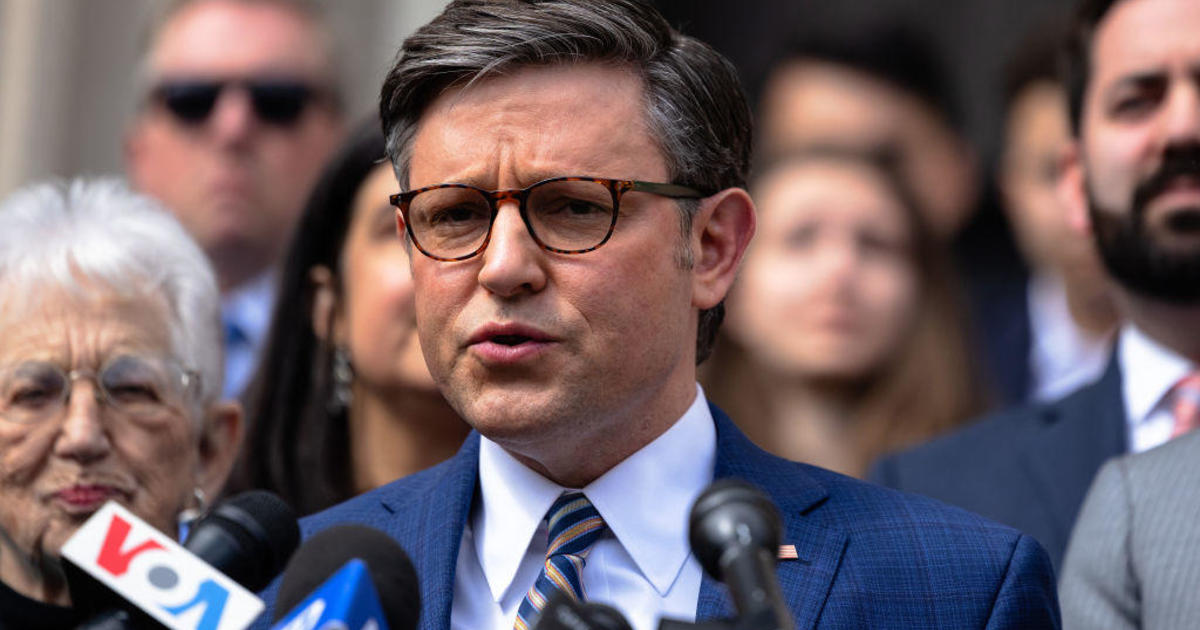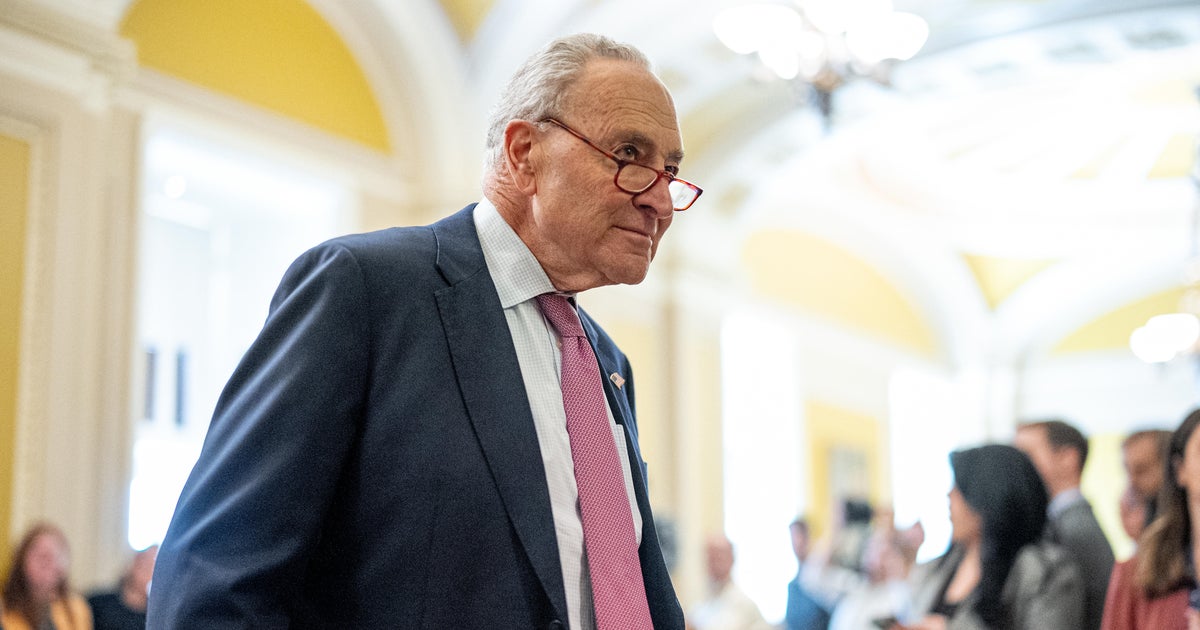Meet the next generation of House Democratic leaders
The first day of the 116th Congress saw Nancy Pelosi reclaim her title as speaker, leading the most diverse Democratic caucus in congressional history. It was also, perhaps, the first time in congressional history that a representative referenced classic hip hop group Naughty by Nature on the House floor.
New York Rep. Hakeem Jeffries, the newly installed chairman of the House Democratic Caucus, was giving his speech nominating Pelosi for the position of speaker. At the end of a rousing address which received several standing ovations from the caucus, Jeffries announced Democrats' – and his own – unyielding support for Pelosi.
"House Democrats are down with NDP: Nancy D'Alesandro Pelosi, the once and future speaker," Jeffries said, paraphrasing the 1991 Naughty by Nature hit "O.P.P."
Jeffries is telegenic and charismatic, a fixture on cable news whom some have compared to President Barack Obama. He replaced fellow New Yorker Joe Crowley as chairman of the Democratic caucus. And he could also replace Crowley for the role of New York Democrat most likely to be the next Speaker of the House.
The current House leadership – Pelosi, Majority Leader Steny Hoyer and Majority Whip Jim Clyburn – are each approaching 80 years old. But right behind them, a new triumvirate of House Democrats is already making waves: Jeffries, Cheri Bustos and Ben Ray Lujan.
Pelosi has agreed to a deal which would limit leadership tenure, meaning that she and her two deputies may be leaving their posts sooner rather than later. When they do, this cadre of young, ambitious representatives may be eager to take their place.
Jeffries
For now, at least, Jeffries says he is laser-focused on enacting the "For the People" agenda, the Democratic policy priority list that the party has committed to enacting. The Democrats' first planned legislation – after dealing with ending the government shutdown – will cover health care costs, an infrastructure package and federal ethics and lobbying reform.
"In the Trump era, the only way to break through is to communicate with simplicity and repetition," Jeffries said. "We must continue to message relentlessly."
The implementation of the "For the People" agenda has a few obstacles: Republicans in control in the Senate and the president may not be willing to cooperate with Democratic priorities, and the government remains partially shut down.
Jeffries in particular has been a vocal critic of the president, often tweeting about him tauntingly. Still, he believes that his mockery of the president will not preclude him from working with Mr. Trump. He cited his work with the administration, and especially Trump son-in-law and adviser Jared Kushner, on the bipartisan criminal justice bill "First Step Act" which passed both houses of Congress at the end of the year.
"At the same time that I worked closely with the administration on passage of the First Step Act and negotiations to get it over the finish line, I remained a fierce critic of Donald Trump whenever and wherever necessary," Jeffries said.
Jeffries engaged in a close and somewhat bitter fight to become caucus chairman. Rep. Barbara Lee, a longtime progressive and major force within the Congressional Black Caucus, lost to Jeffries by only 10 votes. Jeffries, 48, represents the rise of a new generation of leaders in the House, leading Lee, 72, to pin her loss at least partially on ageism and sexism.
In an interview with CBS News, Jeffries characterized the race as "a friendly contest of ideas," but added that it was important now to unify as a conference.
"I have nothing but the greatest degree of respect for Barbara Lee and what she has represented during her tenure in Congress," Jeffries said. "It's my responsibility to do everything I can to make sure that her important voice is heard loudly and clearly over the next two years."
Bustos
Cheri Bustos, the chairwoman of the Democratic Congressional Campaign Committee (DCCC), is fighting to make sure that this year's "blue wave" election wasn't a blip on the radar, and that those new faces on the wall stay in office.
"For the next two years we can't rent these districts, we have to own them," Bustos said about the 40 members who flipped a seat from red to blue. As DCCC, Bustos will be in charge of preserving and perhaps expanding the Democratic House majority.
The congresswoman is considered an up-and-coming leader in the Democratic Party. In 2016, Bustos' southern Illinois district supported President Trump by just under a percentage point. She won the district by 20 points that year, and by 24 points in 2018 – the largest margin by any Democrat in a Trump district.
National Democrats believe that if anyone knows how to speak to the white working-class voters who have turned to Mr. Trump, it's Bustos, who most recently served as chair of "heartland engagement" for the DCCC, working to elect Democrats in the Midwest.
She sees her term as DCCC chair leading troops into the battle not only for the votes, but for Democrats to "literally fight our way back into the hearts of working families."
"We need to be rebranded and show people that we care desperately and ferociously for families," Bustos said.
Is she the one to carry out the rebranding? "That sounds so contrived, and I don't want it to be contrived. I want it to be real," she said.
Bustos said that she is not thinking about potentially becoming speaker in the future, and is instead is focused on making the DCCC "a world-class organization."
Nonetheless, four new members of Congress voted for Bustos to be speaker of the House on Jan. 3, instead of Pelosi.
Lujan
Rep. Ben Ray Lujan of New Mexico, Bustos' predecessor as chairman of the DCCC, was elected to replace Clyburn as assistant Democratic leader, a post recently rebranded as assistant speaker. He says, perhaps optimistically, said that there is no reason why Democrats and Republicans could not work together on a number of priorities.
The agenda is a play on Mr. Trump's campaign promises, namely to provide better health care, to implement a bipartisan infrastructure plan, and to "drain the swamp" in Washington.
"I think the beauty of the agenda that we're leading with is that there's no reason it shouldn't be done in a bipartisan way," Lujan said.
As assistant speaker, Lujan must also attempt to hold his caucus together despite points of disagreement. The political priorities of Rep. Alexandria Ocasio-Cortez, a self-described democratic socialist from New York City, may not be the same as Abigail Spanberger, a moderate Virginia Democrat who replaced Tea Party congressman Dave Brat.
Lujan suggested that ideological differences in the conference would be an asset."We celebrate diversity, we celebrate different viewpoints but we come together with the same goals and vision," Lujan said, referring to the basic agenda of ethics reform and lowering prescription medication costs.
The diversity-is-strength argument did not work so well for House Republicans, who frequently fought amongst themselves in the eight years they controlled the chamber. If Democrats were to become similarly factious, it could quickly undermine leaders' plans for unified messaging.
Lujan has also expressed a lack of interest in the speaker position, preferring to focus on his current role.
But even as prominent leaders in the party maintain their lack of interest in the highest position in the House, they have the chance to demonstrate their own abilities to communicate with other members and legislate effectively. And that may be the best campaign advertisement for speaker there is.




